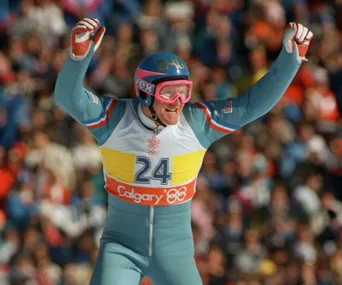Cathy Freeman
It’s a moment forever etched in the hearts of all Australians. Sprinter Cathy Freeman, wearing a green, white and gold tracksuit and, in a nod to her heritage, red, black and yellow shoes, became only the second Indigenous Australian to win a gold Olympic medal.
Competing in the 400m of the 2000 Olympics, the champion athlete tore away from Lorraine Graham of Jamaica and Katharine Merry of Great Britain to secure victory in front of an ecstatic home crowd. In a potent symbol of reconciliation, the triumphant athlete – whose grandmother was part of the Stolen Generation – carried both the Aboriginal and the Australian flags on her victory lap.
“It was always a dream of mine to not only win an Olympic gold medal but to do the victory lap with both flags,” she said in an *SBS( documentary. “I hold the Aboriginal community in such a high place in my heart so I’m very proud of my Indigenous roots.”
Relive the incredible moment in the player below. Post continues after the video
Steven Bradbury
They couldn’t have scripted it better in Hollywood. In one of the most moving underdog victories of all time, unlikely hero Steven Bradbury nabbed Australia’s first-ever Winter Olympics gold medal at Salt Lake City in 2002.
The plucky Aussie speed skater was considered a rank outsider in the 1000m short track final – even approaching the final bend he was 15m behind. But after a jaw-dropping chain of events that saw four leading skaters crash in dramatic fashion, an elated Steven sailed past to claim victory.
At age 28, Steven was one of the slowest competitors, so his strategy was to stay at the back and hope the faster skaters would crash. It worked. “If I can use my story and give other people the motivation to try hard at something, well then I’m stoked,” Steven later told ABC’s The 7.30 Report.
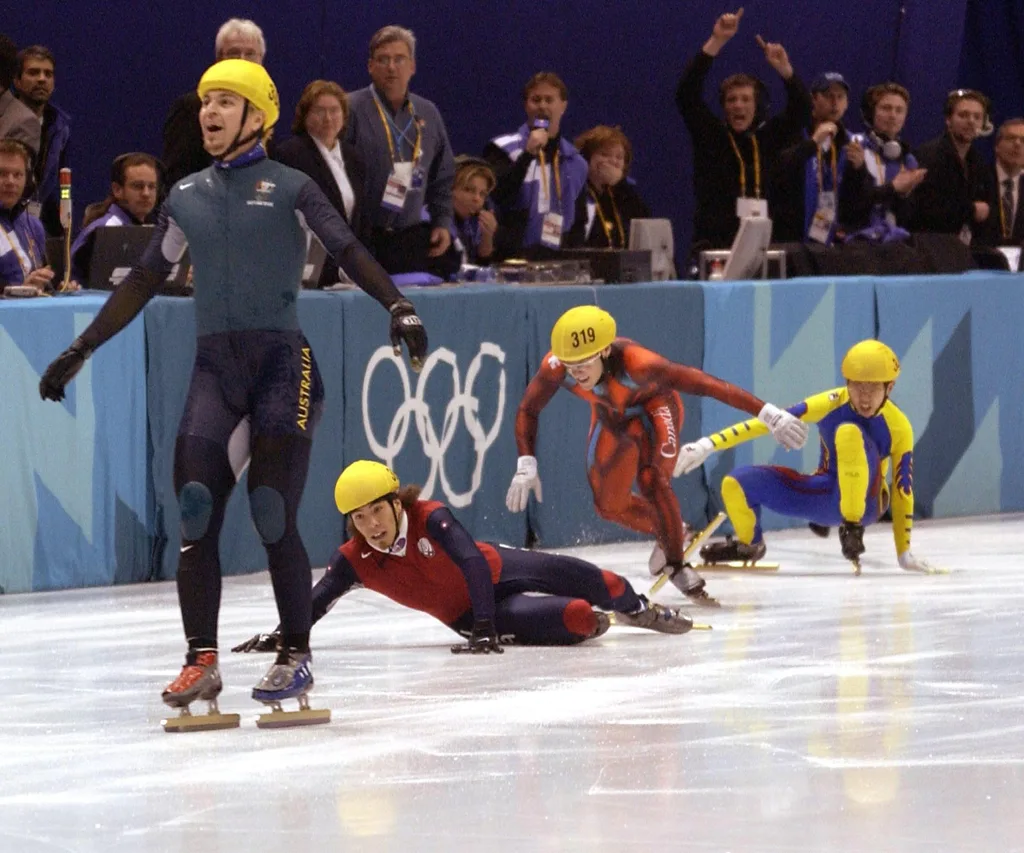
The nation fell in love with Steven Bradbury after he won gold in the most unlikely of circumstances.
Dawn Fraser
The name Dawn Fraser is synonymous with Australian sporting greatness. The freestyle champion broke and held 27 world records over her career, and was the first woman to break the one-minute barrier in the 100m freestyle. But perhaps her greatest achievement came at the 1964 Tokyo Games when she won gold in the 100m freestyle – her third triumph at consecutive Olympics.
To this day, only one other swimmer has managed this feat. What made her Tokyo victory especially poignant was the fact that Dawn’s mother had died in the lead-up to the Games, during a car accident in which Dawn was the driver.
“When I look at pictures of me as my younger self,” she wrote in her book *What I Learned Along The Way(, “and I see a young girl, invariably hopping out of the pool, her thick hair dripping wet and a towel flung over the shoulder, I ask her: ‘How did you survive all that? How did you do it?’ I survived because I stayed true to myself. And I loved every minute of it.”
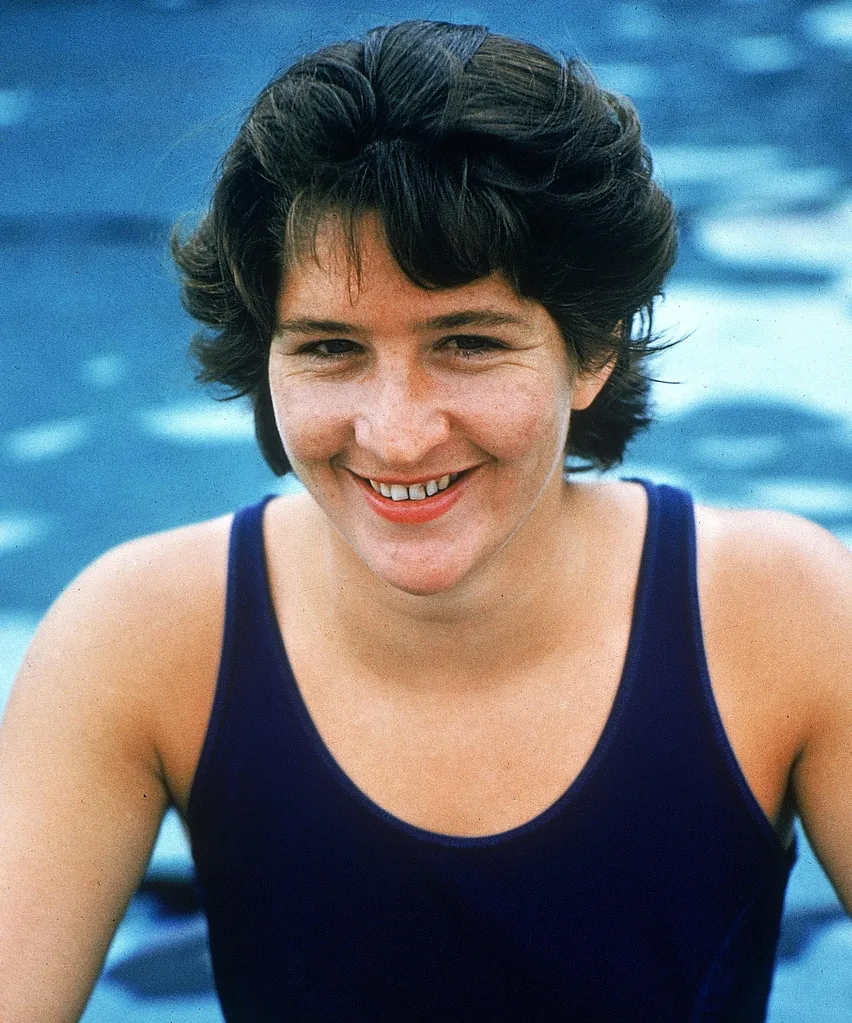
Dawn Fraser is one of Australia’s most respected Olympians.
Kieren Perkins
Heading into the 1996 Atlanta Olympics, freestyle swimmer Kieren Perkins was badly out of form. Even though he was the golden boy – having broken three world records at the 1992 Games – most commentators were doubtful he was fit enough to add another medal to his tally.
Instead, fellow Aussie Daniel Kowalski was highly favoured. Kieren had almost missed qualifying for the event, later revealing he’d felt so unwell with multiple viruses during the trials that he’d almost withdrawn.
But the Brisbane-born freestyler in lane eight startled spectators with a stellar performance, claiming not only the gold but a new world record – at 14:56:40, he was the only swimmer to break the 15-minute mark. “You have to understand how to be mentally tough to race in that situation. That separates the people who win and those who lose by one hundreth of a second,” he told The Daily Telegraph.
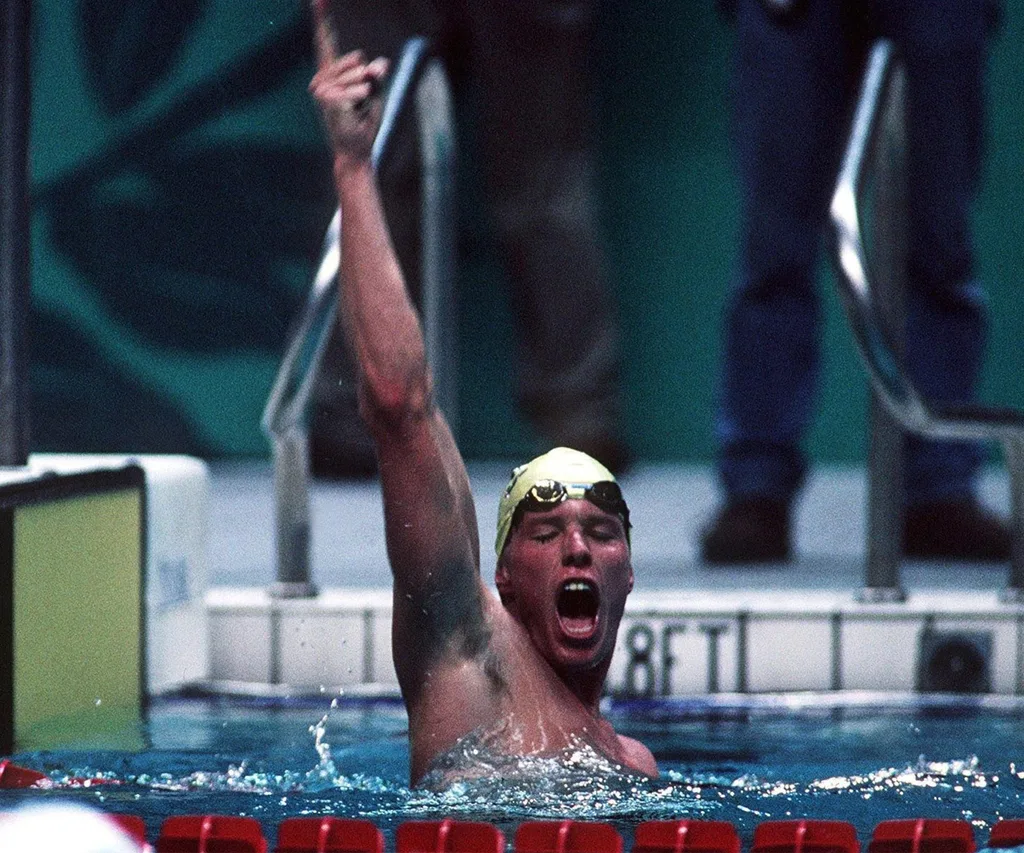
Despite being riddled with sickness in the lead up to the 1996 Atlanta Olympics, Kieren Perkins came out on top!
Alisa Camplin
She shouldn’t have even been competing at the 2002 Salt Lake City Winter Olympics, but despite having two fractured ankles, aerial skier Alisa Camplin was determined to compete on the world stage.
Incredibly, she performed a pair of triple-twisting, double-backflip jumps to claim the gold medal with a score of 193.47. Alisa said that few people within the sport had thought she could become a world champion.
Watch Alisa in action in the player below
“It took seven years of my eight-year campaign before people began to believe that I might actually be able to win an Olympic gold medal,” she said.
“Every person who said I wouldn’t make it stirred the fire in my belly and helped me train that much harder.” Four years later at Turin, Italy, she was again under an injury cloud due to a knee reconstruction and hamstring graft, but after six months of rehabilitation she took out the bronze medal, scoring 191.39.

Alisa Camplin became first Aussie to win gold at aerial skiing!
Matthew Mitcham
Not since 1924 had an Aussie won a gold medal in diving, and at the 2008 Beijing Games Matthew Mitcham badly wanted to end that streak. He failed to qualify for the 3m springboard event but finished second at the semi-final of the 10m platform – and that’s when Australia sat up and took notice.
Even so, diving tends to be dominated by China so his odds seemed slim.
Matthew talks about his Olympic journey in the player below. Post continues after the video…
His first five dives netted mixed results, but the sixth (and final) dive was perfection – his 112.10 remains the highest single-dive score in Olympic history.
Helping Matthew’s cause, leading Chinese diver Zhou Luxin had performed his worst dive of the final. Matthew recalls: “I got behind the dais and I had this really poignant thought that the years of training, all of the injuries, the missing out on every social event, living off baked beans and noodles because I had no money… All of that stuff, it had just been worth it.”
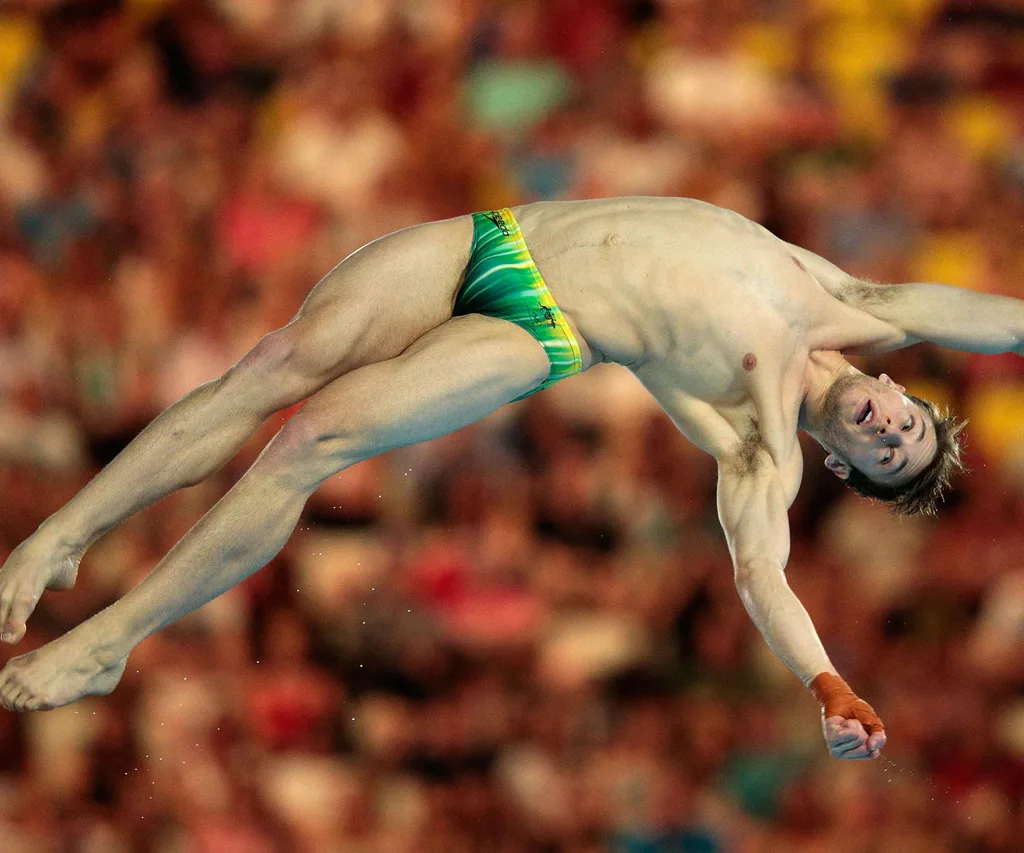
Matthew Mitcham says he never expected to win gold.
The Kookaburras
Despite The Kookaburras being one of Australia’s most consistently successful sports teams, a gold medal had always eluded them – until Athens 2004. Our determined men’s hockey team had placed in the top four of every Olympics between 1980 and 2008, winning one silver and two bronzes at Barcelona, Atlanta and Sydney respectively.
But in the Greek capital, coached by Barry Dancer, they shook the monkey off their back by beating The Netherlands 2-1 – Australia’s first-ever hockey gold. The two teams were tied at the end of normal time but an extra-time goal by striker Jamie Dwyer from the penalty corner sealed triumph for Australia.
“I usually flick it, but this time I decided to hit it,” he recalls. “I saw it going toward the goal. It hit the goalkeepers’ pad and went up and there was this split-second where I was wondering if it was a goal or not.”
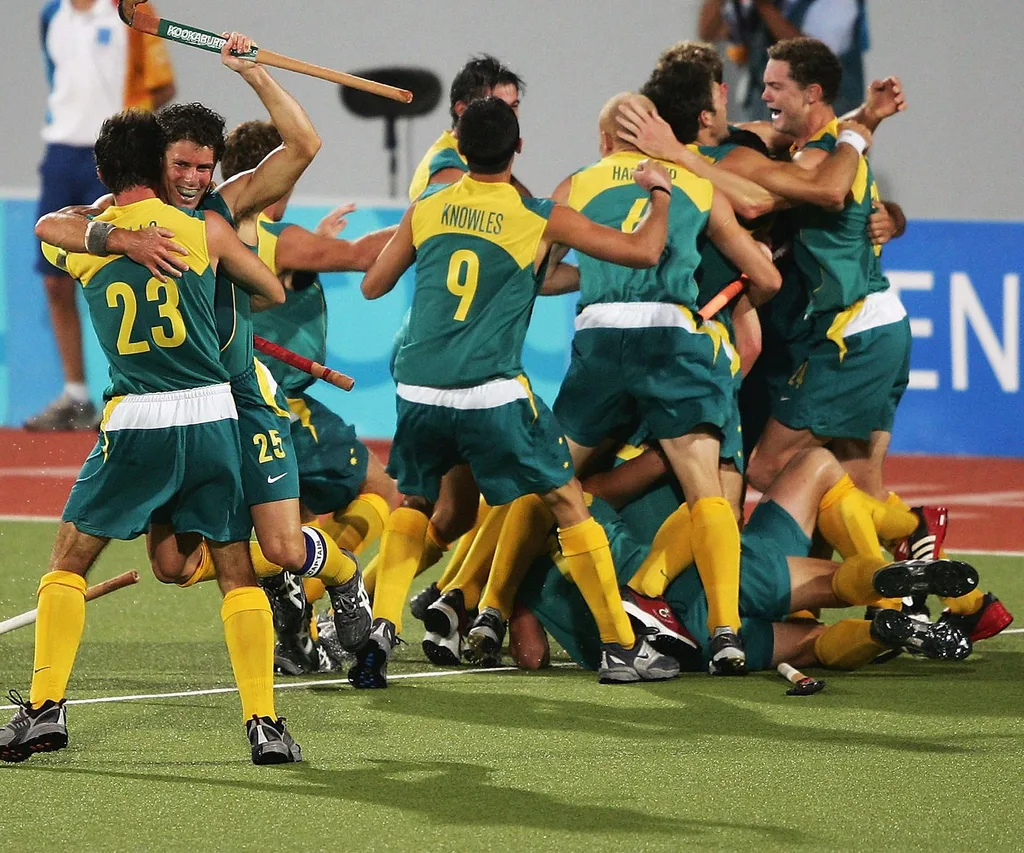
After so many close encounters, The Kookaburras finally won gold at the Athens Olympics in 2004.

